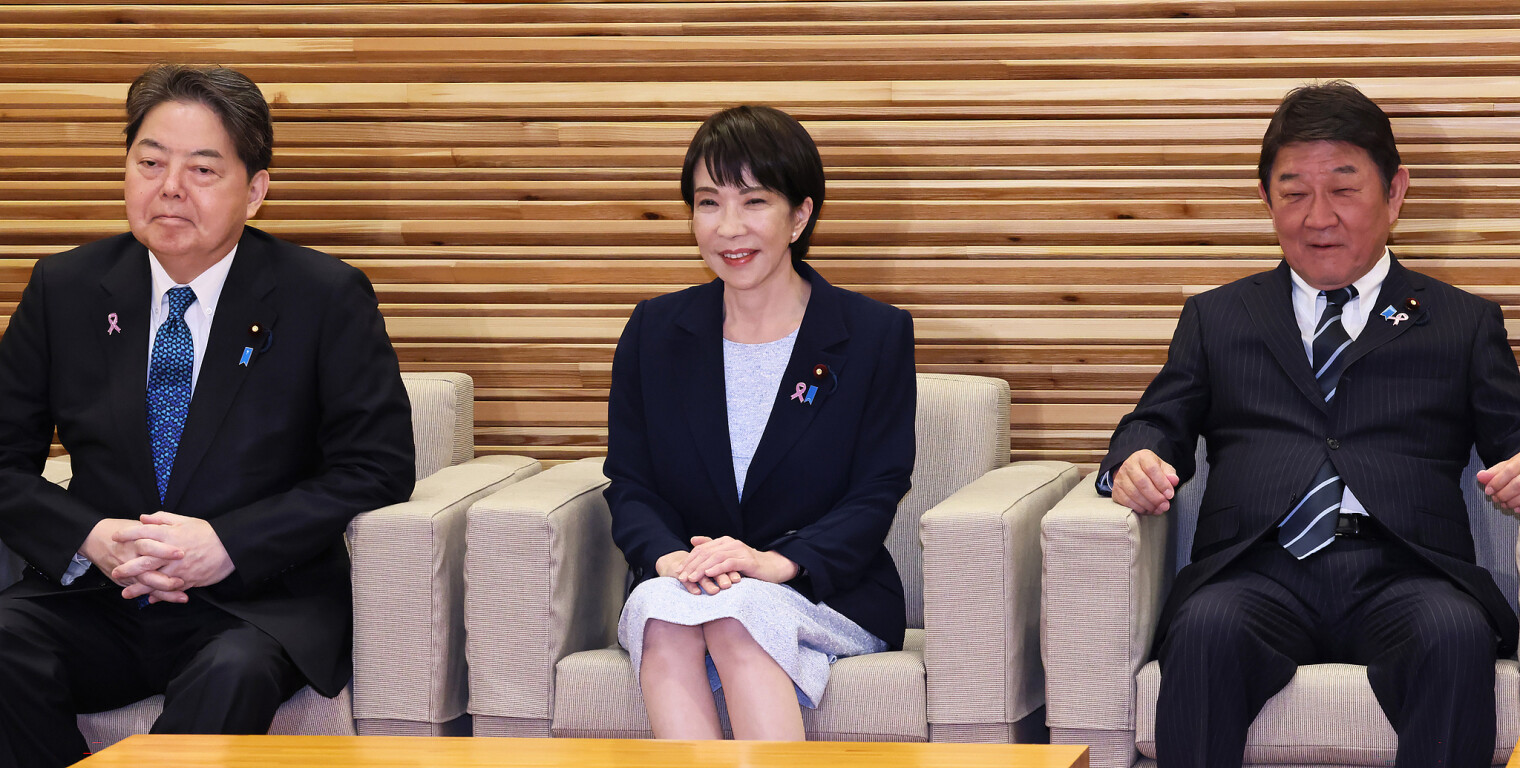At the start of her premiership, Japanese Prime Minister Sanae Takaichi has triggered a crisis through a series of provocative statements that have simultaneously angered four neighboring countries.

(Photo: CFP)
The diplomatic firestorm began on November 7 when Takaichi told parliament that any Chinese action against Taiwan would constitute a "survival-threatening situation" for Japan, potentially warranting military intervention. When pressed to retract these remarks, the prime minister has repeatedly refused.
Takaichi further inflamed regional tensions by reaffirming Japan's claim to the Dokdo islets (known as Takeshima in Japan), prompting immediate backlash from the Republic of Korea. Seoul summoned Japan's senior diplomat to protest and demanded the closure of a controversial "territorial sovereignty exhibition hall" that promotes Japan's claim to the disputed islands. The diplomatic fallout became tangible when the two countries postponed a planned joint naval search-and-rescue drill, marking another setback in their already strained military cooperation.
This was not a minor diplomatic misstep but a fundamental shift in stated policy that has alarmed experts within Japan, said Noriyuki Kawamura, Vice President of the Japan-China Relations Society, according to the China National Radio (CNR) website.
Kawamura said, "The Japanese experts I know, especially those well-versed in China-Japan relations, all believe that Takaichi's remarks this time are a very serious problem. Some even think that this, under certain circumstances, is enough to warrant the Prime Minister's resignation," warning that "Takaichi's reckless remarks stir echoes of Japan's militarist past."
Kawamura said, "This is a major issue because Prime Minister Takaichi made specific remarks on a matter on which the Japanese government has never expressed a position before. I believe these are statements that need to be retracted immediately."
Kawamura said Takaichi's parliamentary comments marked a radical departure from decades of careful diplomatic positioning, directly contradicting the 1972 Japan-China Joint Communiqué in which "the Government of Japan fully understands and respects the stance of the Government of the People's Republic of China that Taiwan is an inalienable part of the territory of the People's Republic of China."
Kawamura said this represented the first time a Japanese government had taken such a specific position on this matter, breaking with precedent in a way that experts view as requiring immediate retraction.
China condemned the remarks as a severe violation of the foundational political documents between the two nations. "The 1972 Joint Statement constitutes solemn commitments made by the Japanese government, which has legal effect under international law and leaves no room for ambiguity or misinterpretation," stated a Chinese Foreign Ministry spokesperson.
Kawamura placed the current crisis in the stark context of Japan's post-war identity, stressing that the nation's Constitution was founded on a vow never to wage war again. He underscored the immense value of the 80-year peace maintained with China, a fragile achievement he attributed to the joint efforts of both nations.
Against this backdrop, he viewed Takaichi's maneuvers as profoundly alarming. "Prime Minister Takaichi's recent remarks have raised serious doubts about the direction of the Japanese government," he stated, issuing a direct warning that her instruction to review the 'Five Principles' on arms exports is "a very dangerous matter."
Veteran Japanese politician Yukio Hatoyama took to social media to criticize his successor, stating plainly, "The Taiwan question is China's internal affair. Japan must not intervene."
As the diplomatic isolation deepens, a segment of its own populace, including experts like Kawamura, holds that her remarks are resignation-worthy and her policies are endangering decades of peace.
Reporter: Guo Zedong
Editor: Yuan Zixiang, James Campion, Shen He
















